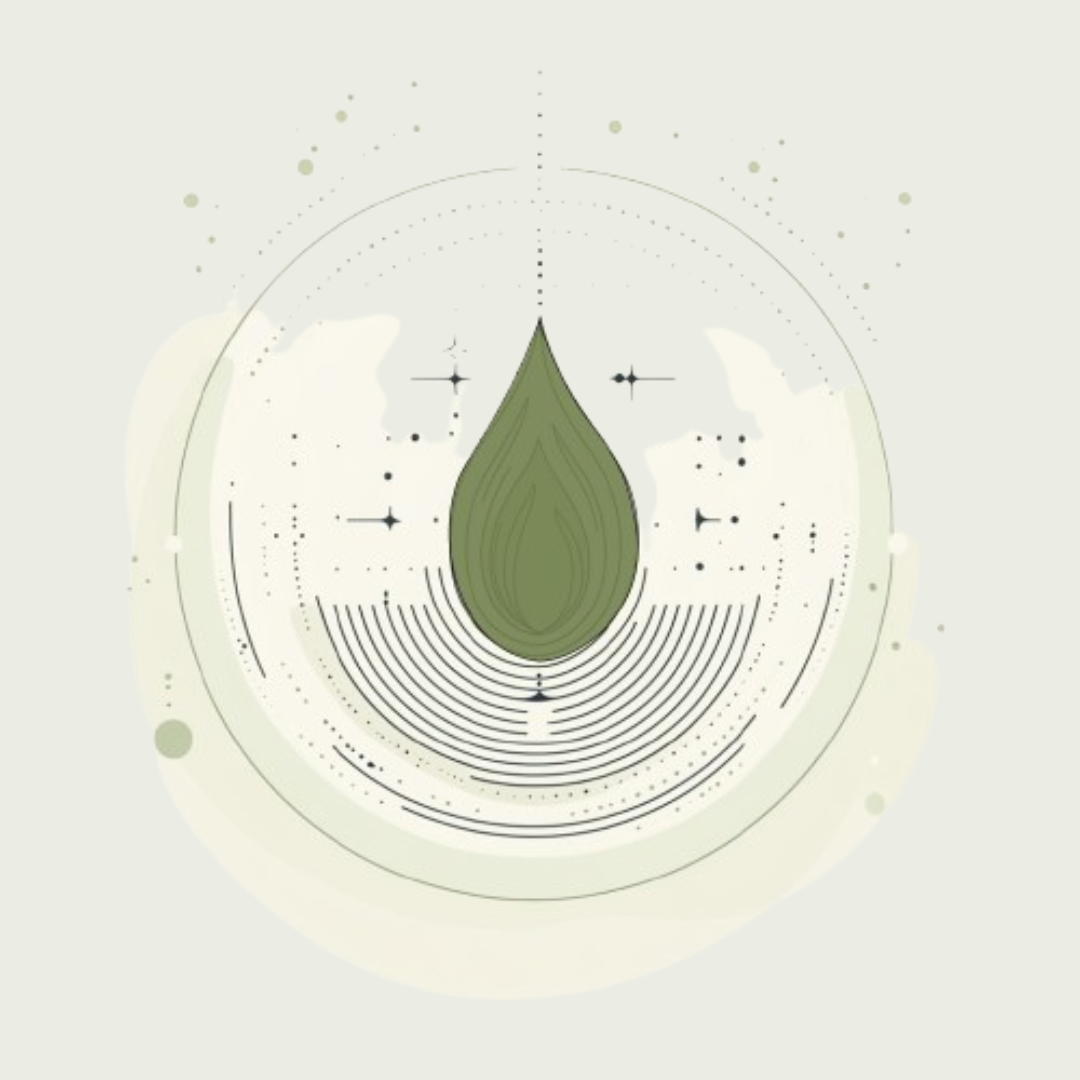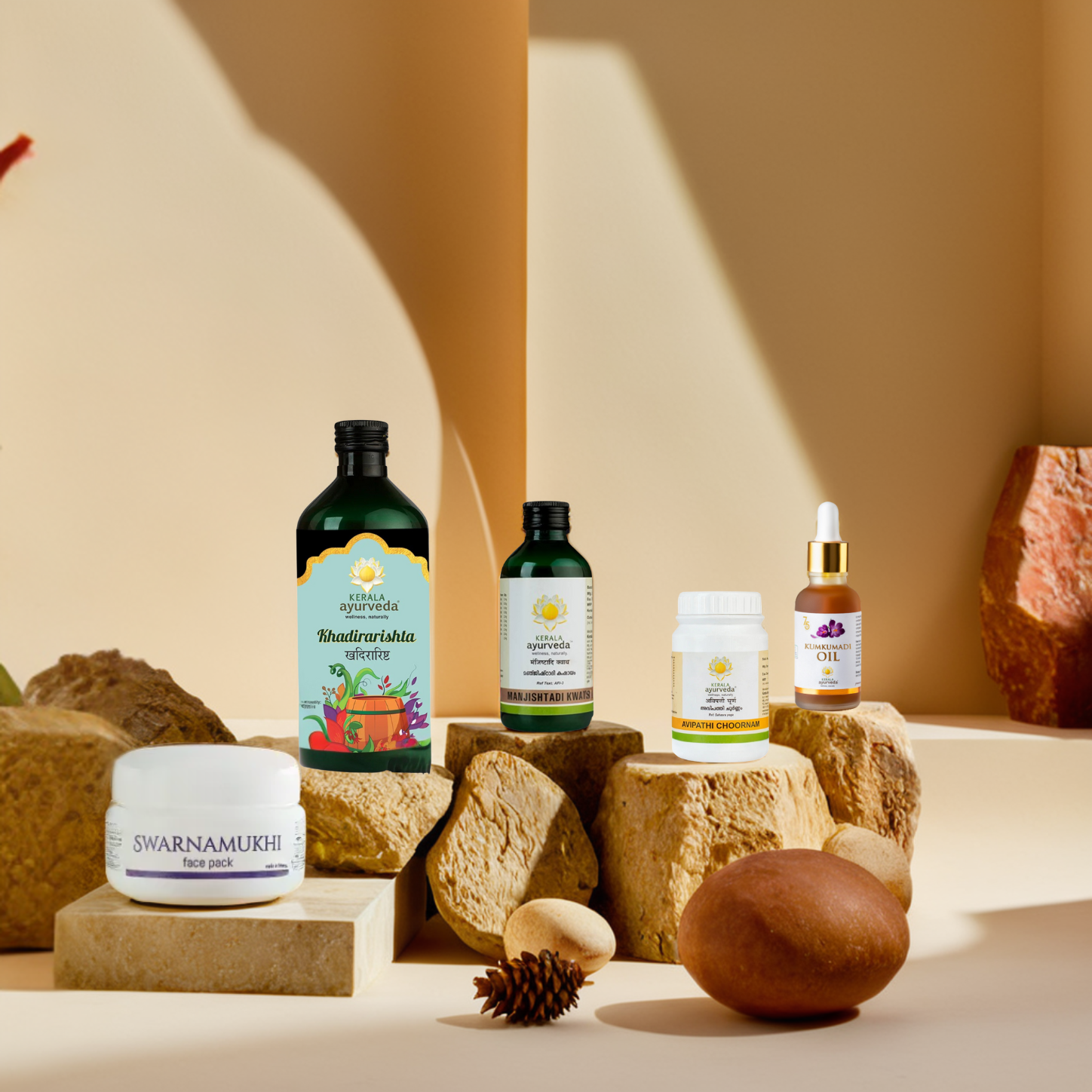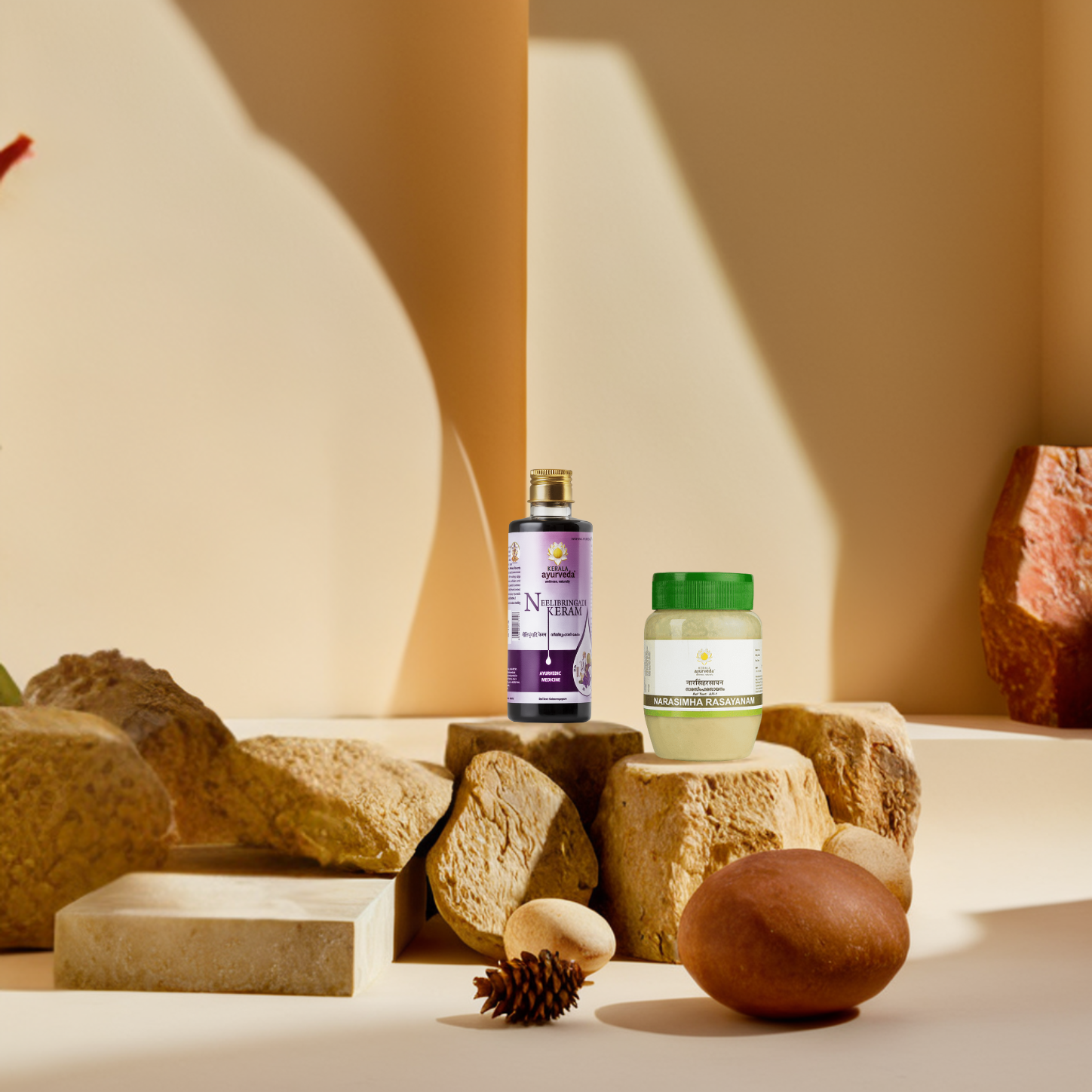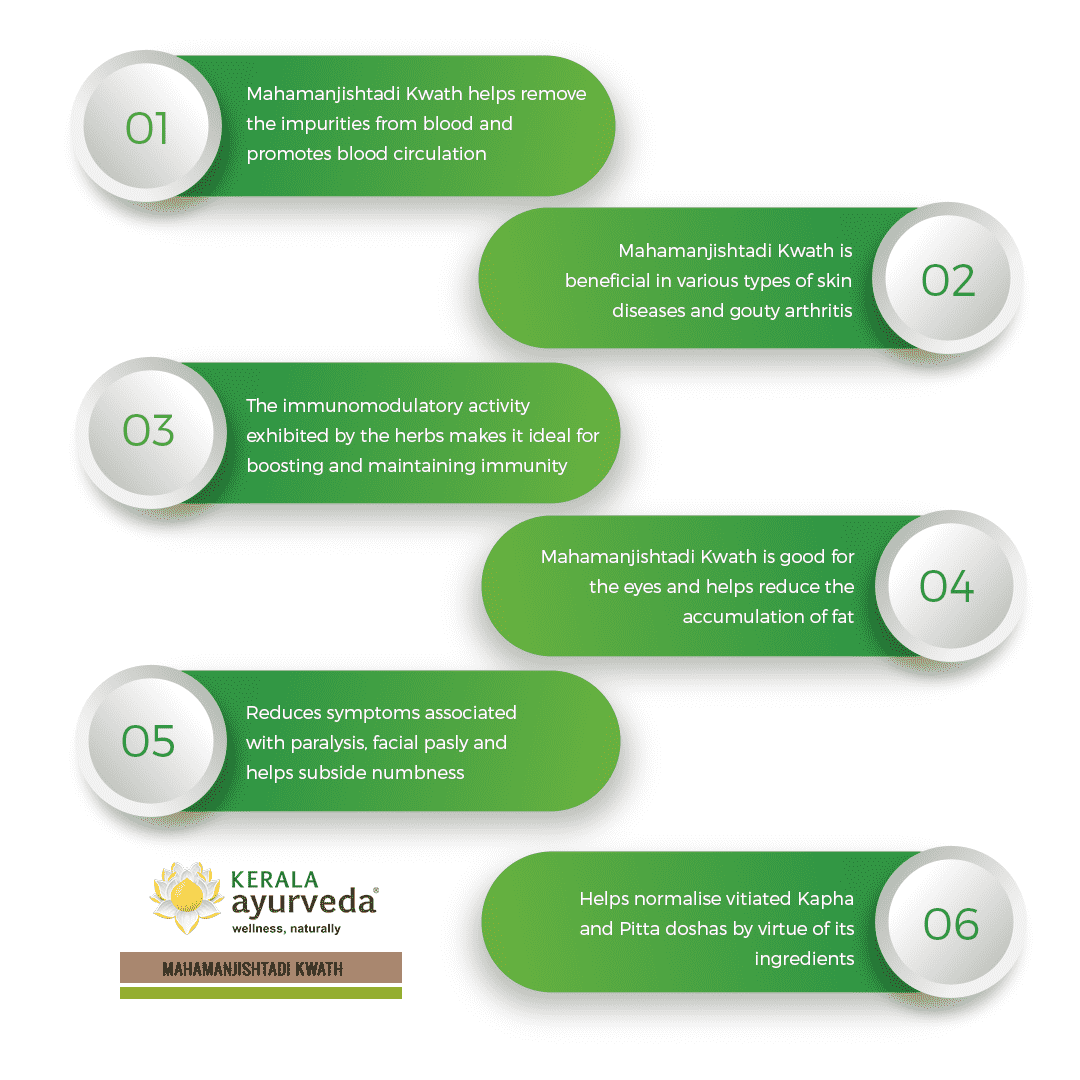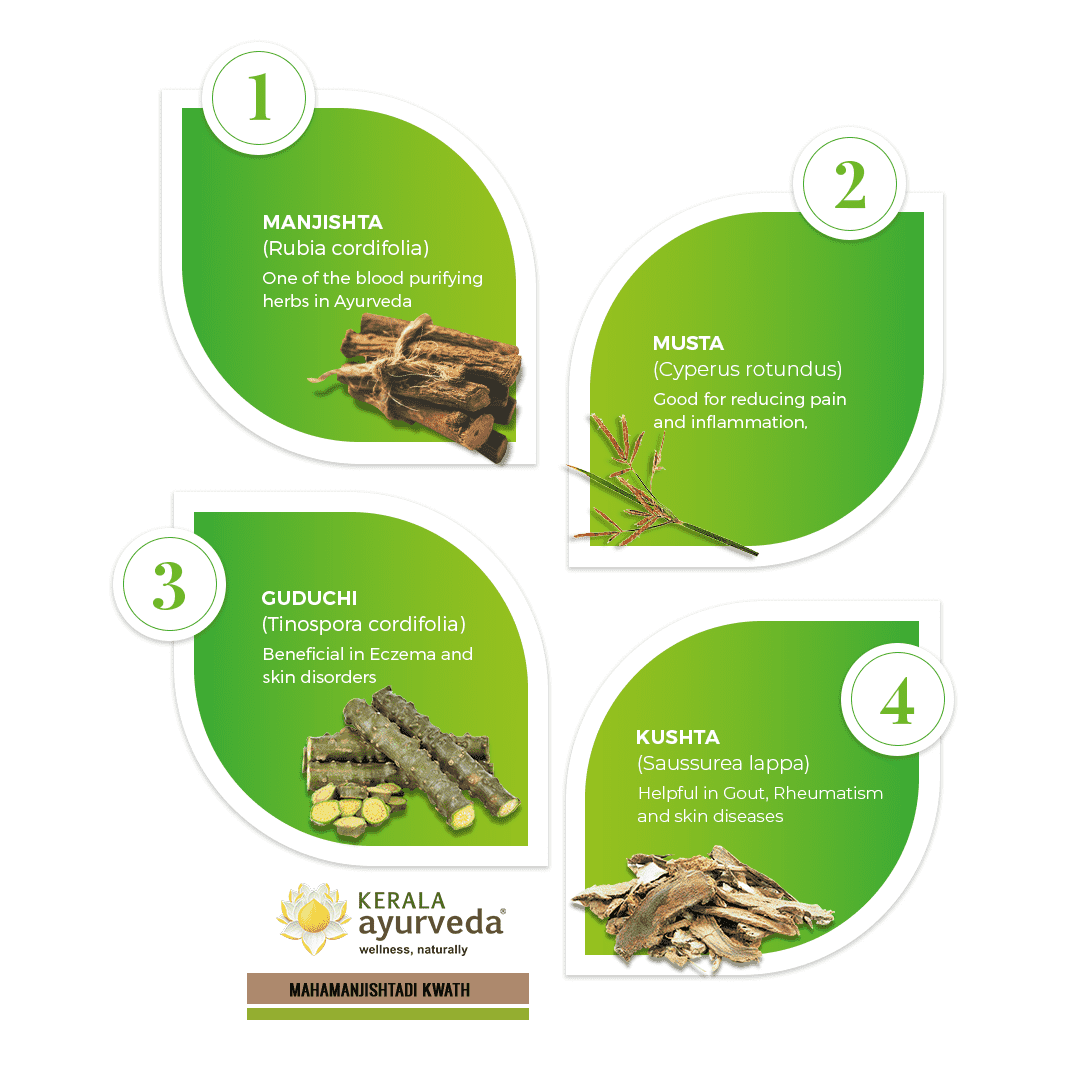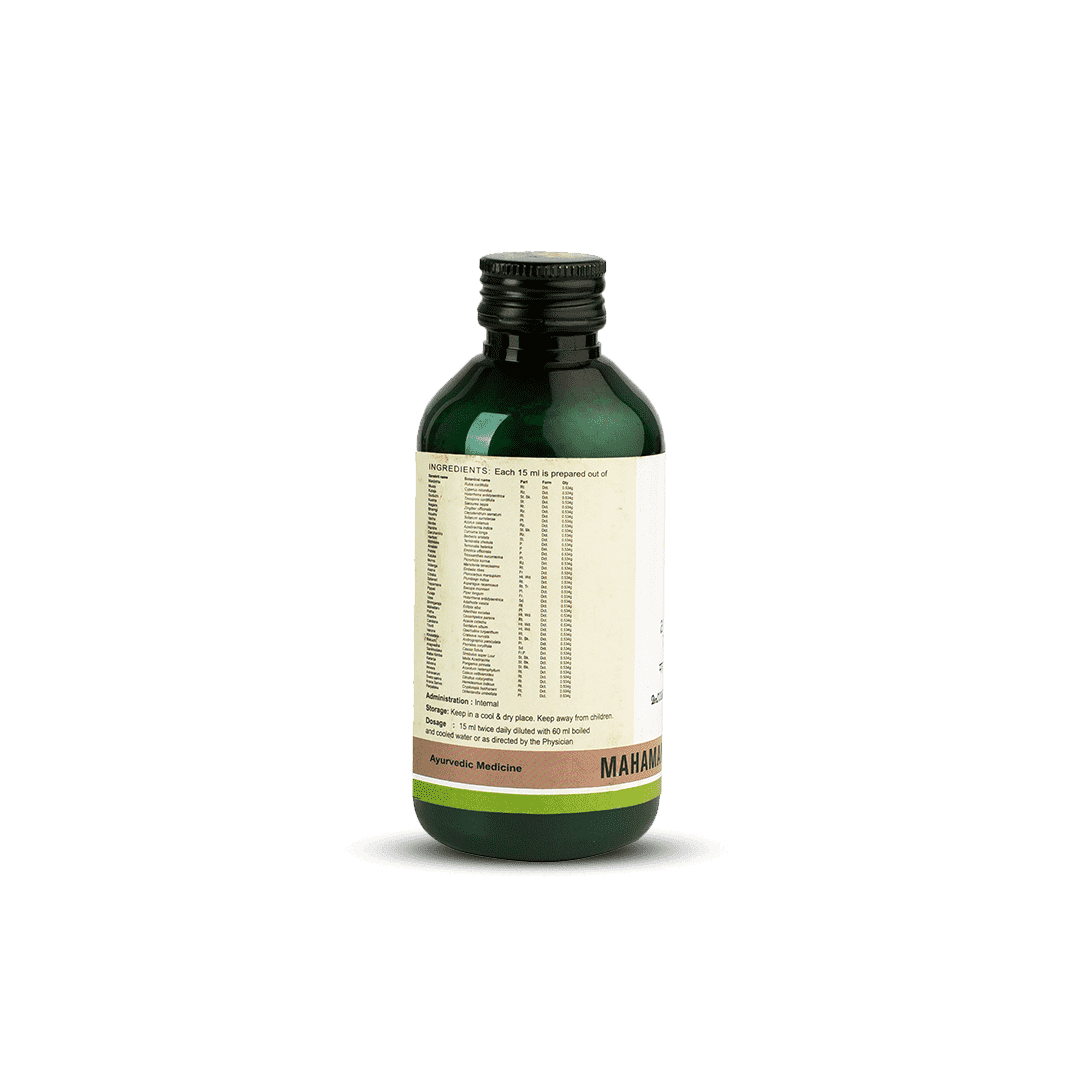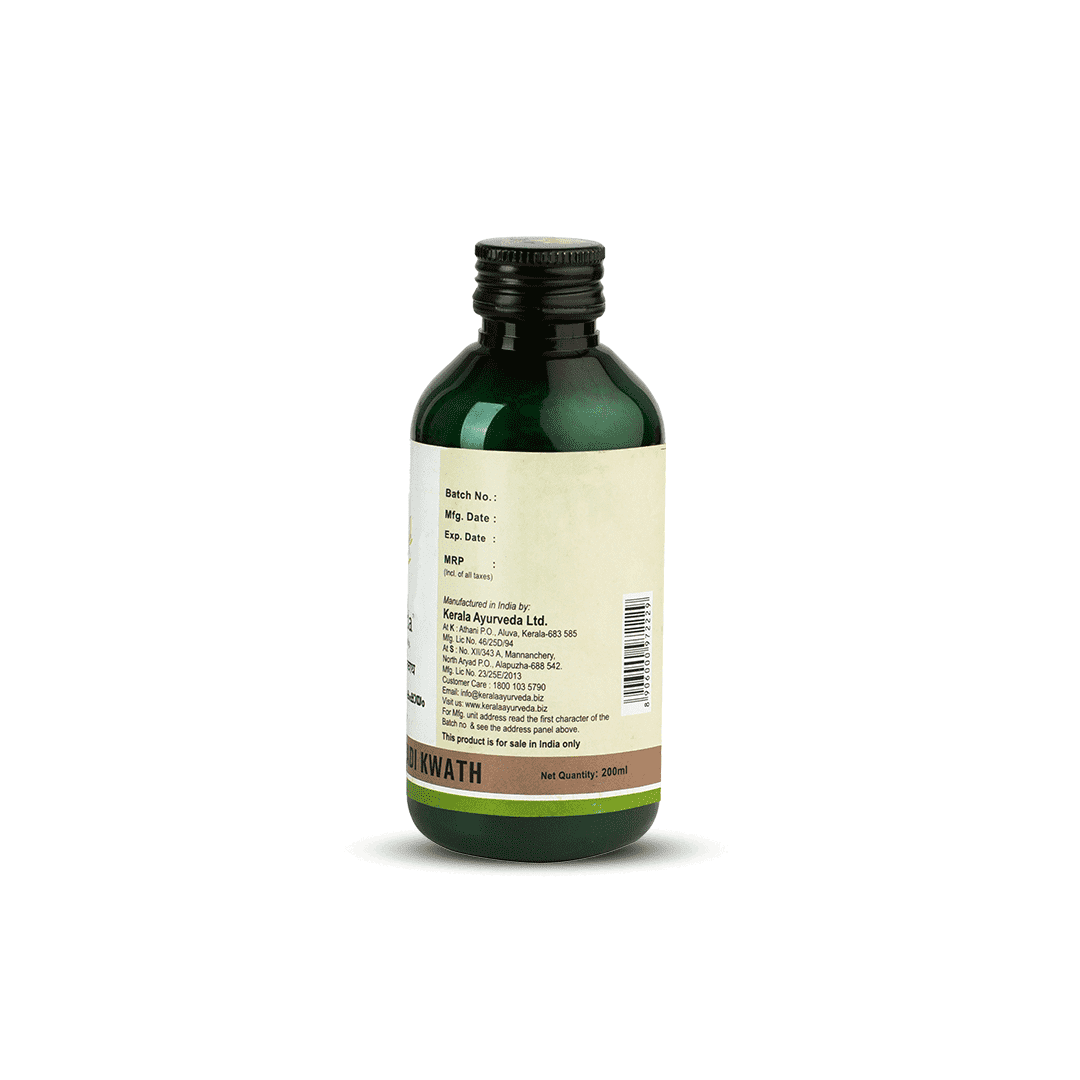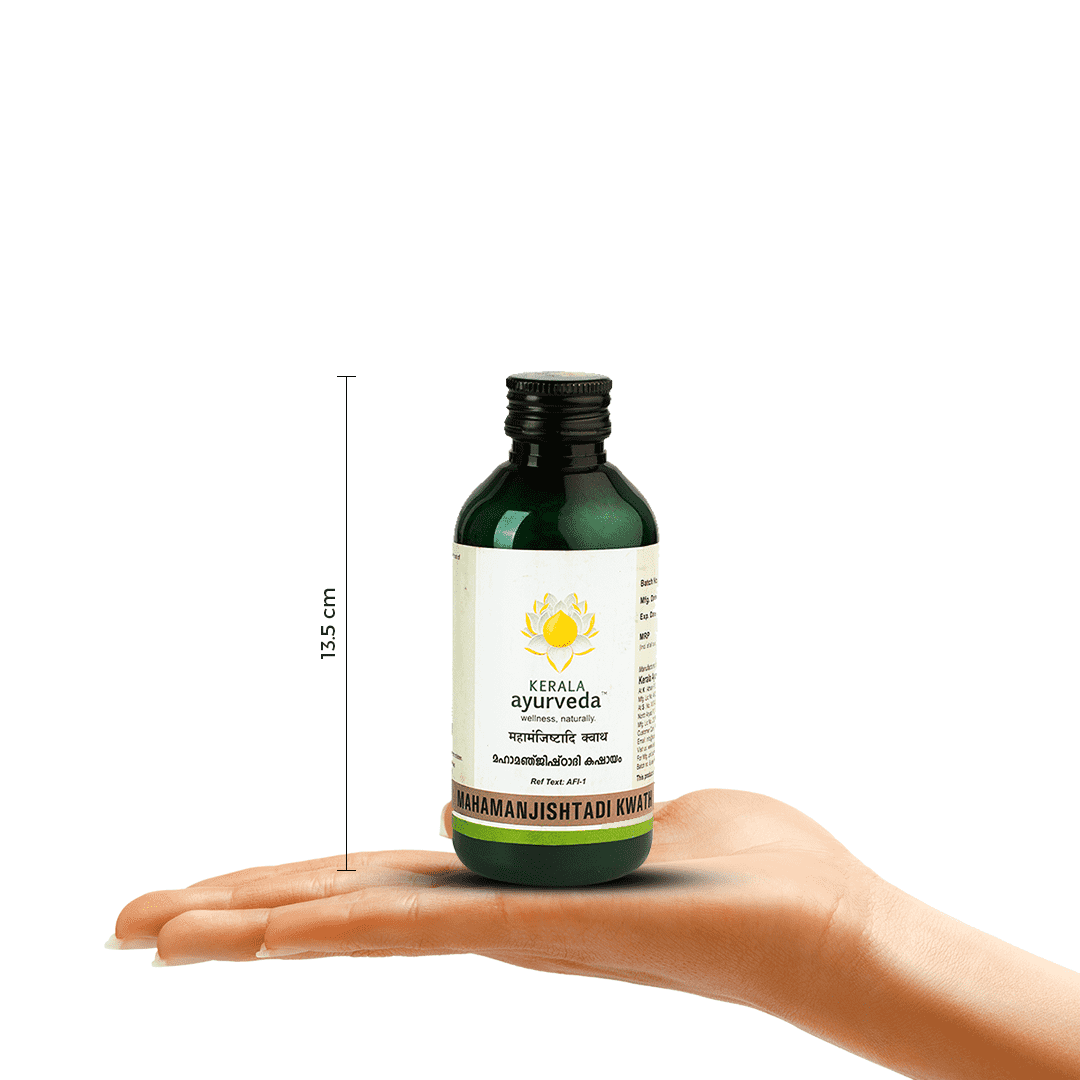Mahamanjishtadi Kwath (200 ml)
Delivery within 2 to 4 days
Country of Origin: India
While there are many syrups for blood purification, Ayurveda has one of the best remedies for blood purification -- Mahamanjisthadi Kwath. Packed with effective herbs like Triphala, Manjistha, Vacha, Tikta, and Nicha, the Mahamanjisthadi Kwath helps purify the blood like no other syrup.
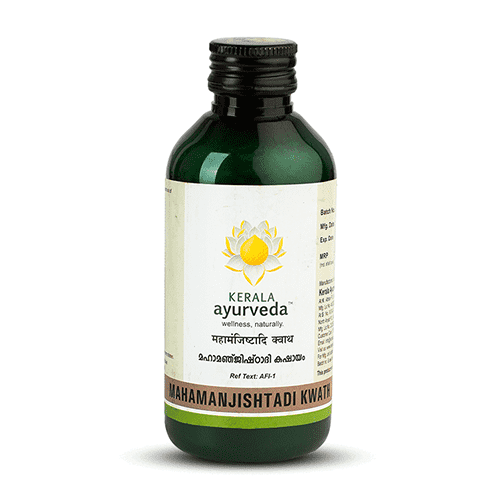
Key Benefits
Ingredients
How to Use?
- Manufactured by: Kerala Ayurveda Limited, Athani Post, Aluva, Ernakulam District, Kerala – 683585, India
- For Queries, Contact: Customer Care: 1800 103 5790; Address: Athani Post, Ernakulam District, Kerala - 683585, India; E-mail: info@keralaayurveda.biz
1. Does Mahamanjisthadi Kwath have any side effects?
You might experience side effects if you are consuming Mahamanjisthadi Kwath without any guidance. So please consult an Ayurvedic practitioner first to consume the supplement as per the instruction.
2. Can a pregnant woman have Mahamanjisthadi Kwath?
We recommend not to consume Mahamanjisthadi Kwath if you are pregnant.
3. Which fruits help purify the blood?
Fruits can be really great natural remedies to detoxify the blood naturally. You can add apples, pears, plums, cranberries, and blueberries to your diet as they will stimulate the blood purifying process in your body. Also, eating tomatoes can help reduce toxins and wastes from your blood.
4. Is Mahamanjisthadi Kwath a blood purifier?
Blood purifiers like Mahamanjisthadi Kwath can be an effective natural measure to help improve your skin's health. You can help sustain the natural glow of your skin when you consume it regularly. The potent herb called Manjistha used in this supplement encourages cleansing the blood by balancing the Pitta dosha. As a result, the herbal blood purifier helps manage various skin disorders.
5. Do I need to take any extra precautions while I am consuming Mahamanjisthadi Kwath?
Self-medication is not advised. Always seek your Ayurvedic practitioner’s advice to get suitable recommendations based on your health conditions before adding this herbal supplement to your regime. The practitioner will check your current medicinal prescription (if any), as allopathic medicines can react with Ayurvedic herbs. This way, he/she can recommend the right dosage and time for consuming Mahamanjisthadi Kwath.


